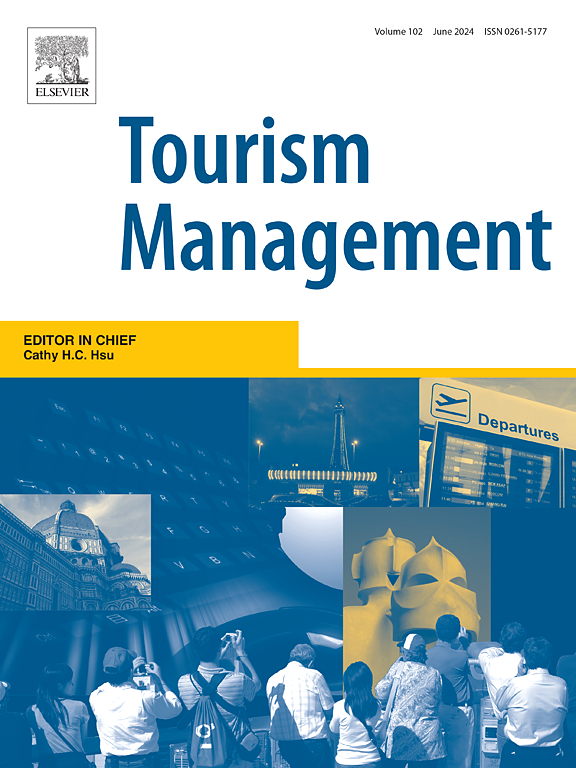Examining the impact of workforce reductions on firm performance
IF 10.9
1区 管理学
Q1 ENVIRONMENTAL STUDIES
引用次数: 0
Abstract
Though workforce reduction strategies have been widely adopted to improve firm performance in the tourism and hospitality industry, empirical evidence of the effects of workforce reductions on performance has been inconclusive. Based on dynamic capabilities theory, this study develops a model and empirically analyzes the impacts of workforce reductions on firm performance across the lodging, airline, and restaurant industries. Further, this study examines whether an industry-specific business model could explain the relationship between workforce reductions and performance. Findings show that while the disruption of organizational processes due to workforce reductions could be detrimental to a firm's dynamic capabilities and financial outcomes, this relationship is moderated by the specific business model the firm adopts. Our study extends previous research by highlighting the important role of a specific business model in explaining the relationship between workforce reductions and firm performance.
考察裁员对公司业绩的影响
虽然在旅游和酒店业,裁员战略已被广泛采用以提高企业绩效,但关于裁员对绩效影响的经验证据尚无定论。基于动态能力理论,本研究建立了一个模型,实证分析了酒店业、航空业和餐饮业裁员对企业绩效的影响。此外,本研究还考察了特定行业的商业模式是否可以解释裁员与绩效之间的关系。研究结果表明,虽然由于裁员而导致的组织流程中断可能对公司的动态能力和财务结果有害,但这种关系受到公司采用的特定商业模式的调节。我们的研究扩展了先前的研究,强调了特定商业模式在解释裁员与公司绩效之间关系中的重要作用。
本文章由计算机程序翻译,如有差异,请以英文原文为准。
求助全文
约1分钟内获得全文
求助全文
来源期刊

Tourism Management
Multiple-
CiteScore
24.10
自引率
7.90%
发文量
190
审稿时长
45 days
期刊介绍:
Tourism Management, the preeminent scholarly journal, concentrates on the comprehensive management aspects, encompassing planning and policy, within the realm of travel and tourism. Adopting an interdisciplinary perspective, the journal delves into international, national, and regional tourism, addressing various management challenges. Its content mirrors this integrative approach, featuring primary research articles, progress in tourism research, case studies, research notes, discussions on current issues, and book reviews. Emphasizing scholarly rigor, all published papers are expected to contribute to theoretical and/or methodological advancements while offering specific insights relevant to tourism management and policy.
 求助内容:
求助内容: 应助结果提醒方式:
应助结果提醒方式:


